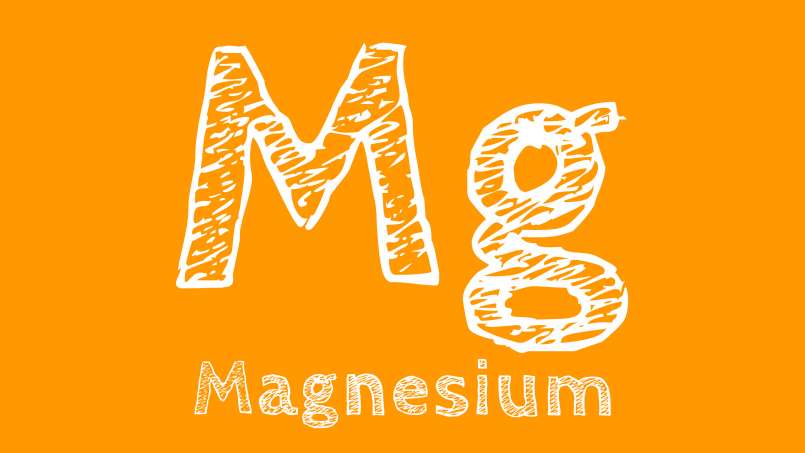Types of Magnesium and Their Benefits

Magnesium is a vital mineral involved in numerous biological processes, supporting the nervous, muscular and skeletal systems. Types of magnesium: citrate (for sleep and constipation), oxide (stomach acidity), malate (energy), glycinate and bisglycinate (relaxation and sleep), taurate (heart), threonate (cognitive), carbonate (digestion) and marine (electrolytes).
Magnesium is essential for the health of the human body, being involved in over 300 biochemical reactions. This mineral contributes to the optimal functioning of the nervous, muscular and skeletal systems, while also improving sleep quality and reducing stress. There are several types of magnesium on the market, each with specific benefits and administration recommendations.
Types of magnesium
Magnesium Citrate
Magnesium citrate is one of the most popular forms due to its high bioavailability. It is recommended for:
- Combating constipation, thanks to its laxative effect.
- Reducing muscle cramps.
- Improving sleep quality.
Administration: It is recommended to take it in the morning or evening, depending on the purpose. For constipation, take it in the morning, before meals.
Magnesium Oxide
This form of magnesium has a high concentration of elemental magnesium, but lower bioavailability. It is mainly used for:
- Treatment of constipation.
- Reduction of gastric acidity.
Administration: Usually taken before bedtime or as recommended by a doctor.
Magnesium Malate
This form is a combination of magnesium and malic acid, being excellent for:
- Increase energy levels.
- Relieve muscle pain, often recommended in fibromyalgia.
Administration: It is administered in the morning or during the day, for a boost of energy.
Magnesium Glycinate and Bisglycinate
Magnesium glycinate is a form of magnesium bound to glycine, an amino acid with calming properties. Magnesium bisglycinate is a subcategory of this, characterized by better absorption and increased gastrointestinal tolerability.
Magnesium Glycinate is ideal for:
- Reducing anxiety.
- Improving sleep.
- Supporting the health of the nervous system.
Administration: Administered in the evening, for a relaxing effect.
Magnesium Bisglycinate offers additional benefits for:
- Reducing stress and anxiety.
- Combating chronic fatigue.
- Improving sleep quality.
Administration: It is usually administered in the evening, to benefit from the calming and relaxing effects.
Magnesium Taurate
This form combines magnesium with taurine, an amino acid beneficial for heart health. It is indicated for:
- Reducing high blood pressure.
- Supporting heart function.
Administration: Usually administered in two doses, morning and evening.
Magnesium Threonate
This form is appreciated for its ability to cross the blood-brain barrier, being beneficial for:
- Improving cognitive function.
- Supporting memory and concentration.
Administration: It is recommended to take it in the evening, to support brain regeneration.
Magnesium Carbonate
This form of magnesium is frequently used for:
- Neutralizing stomach acid.
- Supporting digestive health.
Administration: It is administered during meals or as recommended by a doctor.
Marine Magnesium
Marine magnesium is extracted from seawater and contains a mixture of natural magnesium salts. It is useful for:
- Supporting bone health.
- Improving electrolyte balance.
- Reducing fatigue and exhaustion.
Administration: Take with meals for optimal absorption.
Conclusions
Choosing the right type of magnesium depends on the specific needs of each individual. It is important to consult a doctor or pharmacist before starting to take it, to determine the appropriate dosage and form.
To get the most out of magnesium supplements, keep the following practical recommendations in mind:
- Choose the right form for your needs: For example, for sleep and relaxation, opt for magnesium glycinate or bisglycinate, and for energy, try magnesium malate.
- Respect the optimal time of administration: Some forms, such as citrate, are ideal in the morning for their energizing or laxative effect, while others, such as threonate, are more suitable in the evening.
- Consult a specialist: The correct dosage varies depending on age, gender, activity level and general health.
- Integrate magnesium into your daily diet: Along with supplements, consume foods rich in magnesium, such as spinach, nuts and whole grains.
Did you know that...?
- Magnesium plays a key role in activating vitamin D in the body?
- Can magnesium deficiency lead to symptoms such as chronic fatigue, muscle cramps and migraines?
- Foods rich in magnesium include spinach, pumpkin seeds, almonds and avocados?
- About 60% of the magnesium in the body is stored in the bones, with the rest found in muscles, soft tissues and blood?
- Can excessive caffeine or alcohol consumption lead to increased magnesium loss?
- Is magnesium crucial for energy production (ATP) in cells?
- Are low magnesium levels associated with an increased risk of type 2 diabetes and cardiovascular disease?
Comments